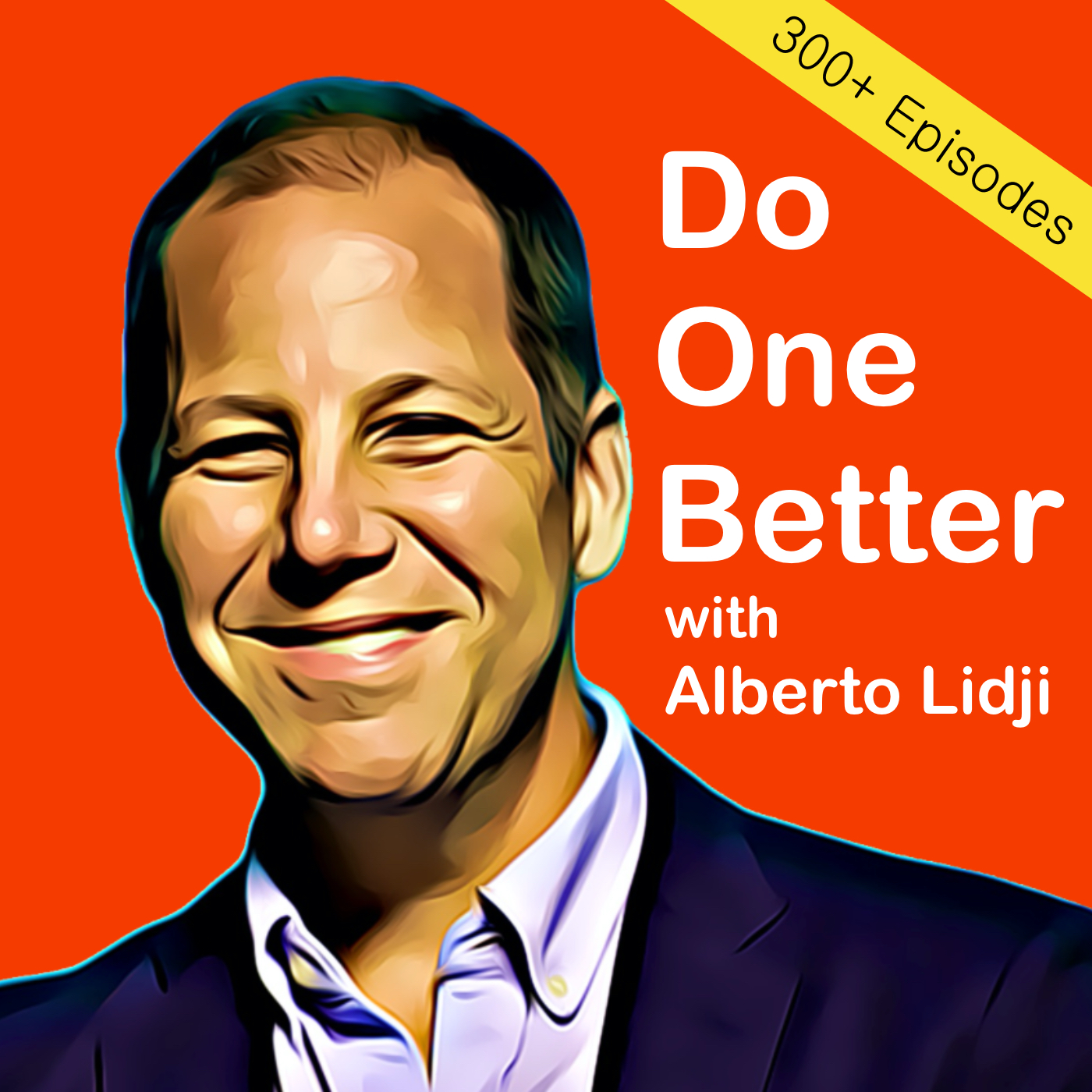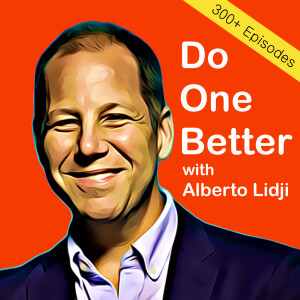

Listen to 300+ interviews on philanthropy, sustainability and social entrepreneurship. Guests include Paul Polman, David Lynch, Siya Kolisi, Cherie Blair, Chiwetel Ejiofor, Bob Moritz, David Miliband and Julia Gillard. Hosted by Alberto Lidji, Visiting Professor at Strathclyde Business School and ex-Global CEO of the Novak Djokovic Foundation. Visit Lidji.org for more information.
Episodes

Monday May 18, 2020
Monday May 18, 2020
This episode follows from an earlier episode of The Do One Better! Podcast featuring Matt Reed, which aired in October 2019. It is worth listening to that episode in conjunction with this one.
This conversation sheds light on the Aga Khan Foundation and the Aga Khan Development Network at a global level and provides tangible insight to their work in India.
Matt Reed is CEO of the Aga Khan Foundation in the UK (and was formerly CEO in India between 2013 and 2016) and Tinni Sawhney is the current CEO of the Aga Khan Foundation in India. Together, they provide a multifaceted account of how they’re helping the most marginalised communities and individuals.
The Aga Khan Foundation is one of 10 development agencies that together form the Aga Khan Development Network, founded by His Highness the Aga Khan. They work across all 17 UN Sustainable Development Goals (SDGs) and aim to:
- Improve the quality of life, in all its dimensions, in all the communities where they are active
- Promote pluralism
- Enhance self-reliance and civil society
They’re active in approximately 20 countries across central and south Asia, east and west Africa, and the Middle East. They focus on the poorest of the poor, in some of the most remote regions of the countries where they’re active.
Across the Network, they employ between 80,000 and 90,000 people – excluding the communities and volunteers they work with – and the Foundation itself works with approximately 40,000 civil society organisations annually. Annual operations across all 10 agencies is roughly $5.5bn.
Tinni Sawhney sheds light on the work of the Aga Khan Foundation in India. Their interventions span many sectors, including girls’ rights, women’s economic empowerment, gender equality, early childhood development and agriculture. Prioritising the needs of women is central to all their work.
On the issue of society’s attitudes in India towards women being active in the labour market; girls staying in school for as many years as boys do etc: Tinni notes that oftentimes, women’s work is unseen and unheard. At the Aga Khan Foundation, they want to make sure women realise just how important women's work is both to the communities in which they reside and also in their own households. It is also important to help men realise that the work of women is so fundamental to the economic development of their work and, therefore, they need to allow women to step out of their home.
Tinni talks with passion about an intervention that helps schoolgirls and young women have a voice. She sheds light into one programme that had identified that many girls were dropping out of school to stay at home and manage the house. But these girls definitely had aspirations.
So, they launched learning centres that provided a welcoming environment and enabled participants to gain some qualifications and vocational life skills - also making them aware of their rights and entitlements.
This life skills education led girls to realise they could have a different life. In the eyes of their immediate household these were now women who were contributing to the running of the household economy, so that increased their status within the household and, importantly, within the community there was also a greater acceptance of women working.
Many girls who complete this vocational training end up becoming role models to other girls in their communities. And, ultimately, that’s how change across the whole of society happens.
The Aga Khan Foundation is very much a facilitator and their interventions are sustainable, whereby they continue to yield benefit to local communities even after the Foundation is no longer directly involved, and whereby many of the benefits and ideas that result from their interventions actually originate within the local communities themselves.
Tinni goes on to shed light on her own professional trajectory and how she ended up becoming the CEO of the Aga Khan Foundation in India. She notes that while growing up she didn’t feel she was going to be active in the development field. But that changed when she joined the Institute of Rural Management in Gujarat . As part of her training she had to live two months in a village that had no running water and the only house that had a toilet was the house where Tinni was sent to live by her institute. That’s when she realised that if we are really going to make a change then perhaps this is the setting where one starts. She was very enthused by Mahatma Gandhi’s sayings that India resides in its villages. That’s where Tinni found her calling.
Tinni’s key takeaway for listeners: Sometimes we find the greatest stories of courage and empowerment among those we would think of as poor. She has found some of the greatest stories of empowerment among the women she works with. She feels the potential to overcome great odds is present in everyone. With a little bit of support, people can take this potential so much further – one cannot even imagine. With a little support that potential can really become an agent of change. This is very inspiring!
Visit Lidji.org for guest bios, episode notes and useful links. Please subscribe and share widely with others – thank you!
No comments yet. Be the first to say something!